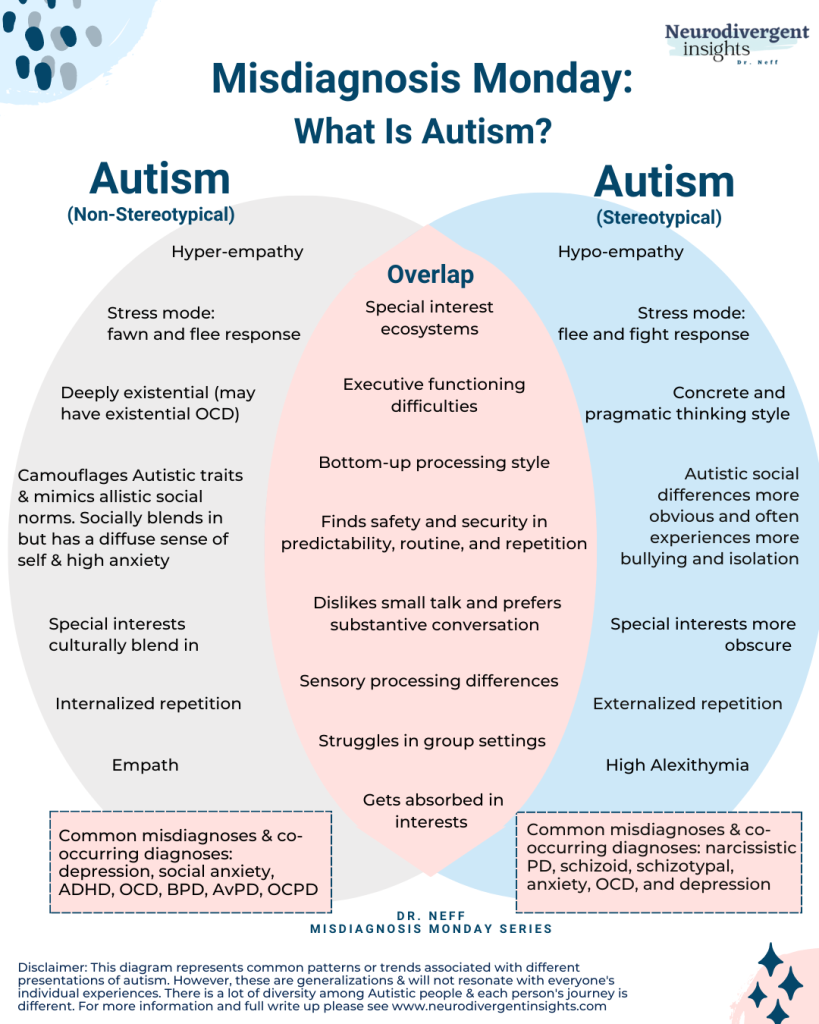Detecting autism in people in Australia poses special difficulties and considerations that reveal the evolving understanding of the range and the diverse wants of individuals. Unlike youth diagnoses that often count on early developmental markers, adult autism analysis requires recognizing simple behavioral designs, communication variations, and social problems that might have been camouflaged within the years. The procedure involves a comprehensive and culturally painful and sensitive approach that acknowledges the diverse backgrounds and activities of an individual seeking assessment.
Australia’s diagnostic structure for adult autism is inspired by globally acknowledged standards such as the Diagnostic and Mathematical Manual of Intellectual Problems (DSM-5) and the International Classification of Conditions (ICD-10). Nevertheless, experts doing assessments in Australia are inspired to adopt a person-centered, strengths-based perception that thinks an individual’s special neurodiversity and national context.
Option of diagnostic solutions is a crucial part of the Australian landscape, and efforts are increasingly being made to handle disparities in access to assessments across regions. Cities usually have significantly more sources and particular professionals, while rural and rural places might face problems in giving reasonable and detailed diagnostic services. Raising understanding and creating diagnostic capacity in underserved parts remain central factors for improving accessibility.
The diagnostic process usually requires a multidisciplinary staff, including medical psychologists, psychiatrists, presentation pathologists, and occupational therapists. This collaborative approach guarantees a holistic assessment that views cognitive qualities, language proficiency, sensory sensitivities, and emotional wellness factors. More over, professionals are increasingly recognizing the significance of concerning people in the diagnostic method, valuing their self-reported activities and insights.
Cultural competence represents a vital position in the diagnostic journey for people seeking examination in Australia. Indigenous Australians, culturally and linguistically diverse neighborhoods, and people from different skills need tailored approaches that acknowledge the influence of culture on expression and understanding of autism. Professionals are prompted to participate in continuing cultural competency training to ensure a nuanced understanding of diverse perspectives.
Late-diagnosed adults may possibly face distinctive difficulties as they understand the complicated feelings and changes that come with understanding their neurodivergent identity. The diagnostic trip usually stretches beyond the evaluation itself, concerning post-diagnostic support, including counseling, psychoeducation, and the progress of coping methods tailored to the individual’s strengths and challenges.
The recognition of sex range within the autism spectrum is yet another growing aspect of diagnosis in Australia. Old-fashioned diagnostic conditions, of historically predicated on generally male displays, may not capture the diverse expressions of autism in girls and individuals with diverse gender identities. Efforts are underway to improve diagnostic instruments and increase understanding of the initial activities of autistic people across the sex spectrum.
Research and advocacy enjoy integrated jobs in shaping the ongoing future of adult autism analysis in Australia. Continuing reports contribute to a further comprehension of the prevalence, experiences, and wants of people on the spectrum. Advocacy organizations, equally national and local, perform towards destigmatizing autism, increasing awareness, and cause of autism plan improvements that prioritize the introduction and well-being of autistic persons in Australian society.

In conclusion, diagnosing autism in people in Australia involves a powerful and person-centered method that identifies the individual’s distinctive benefits, problems, and cultural context. The ongoing efforts to boost availability, social competency, and attention subscribe to an even more inclusive and supportive environment for adults seeking examination and navigating their neurodivergent identities in the Australian context.
